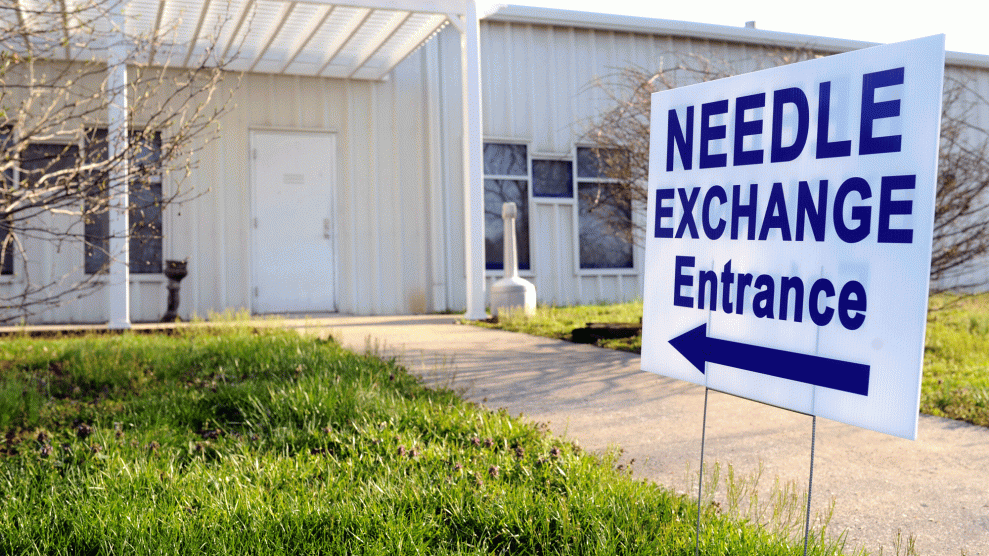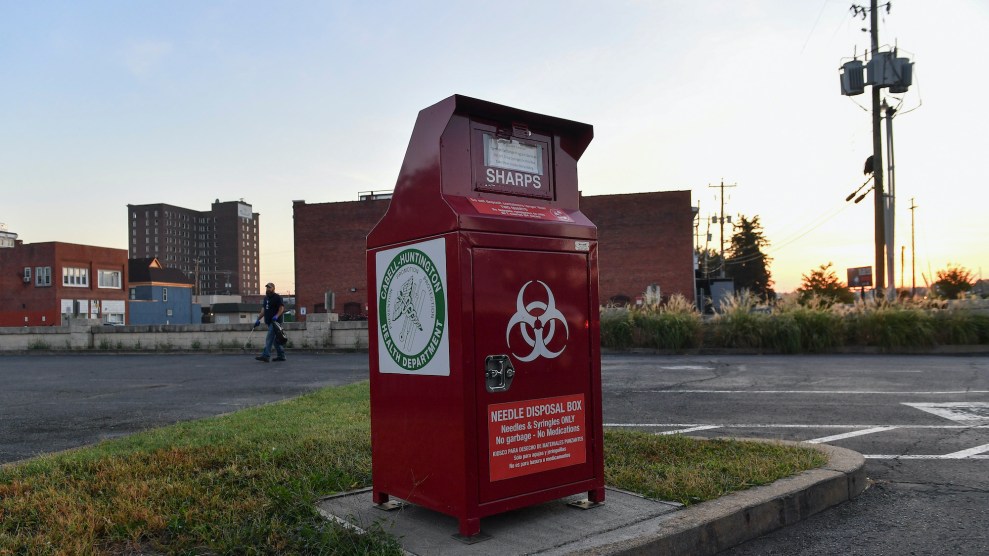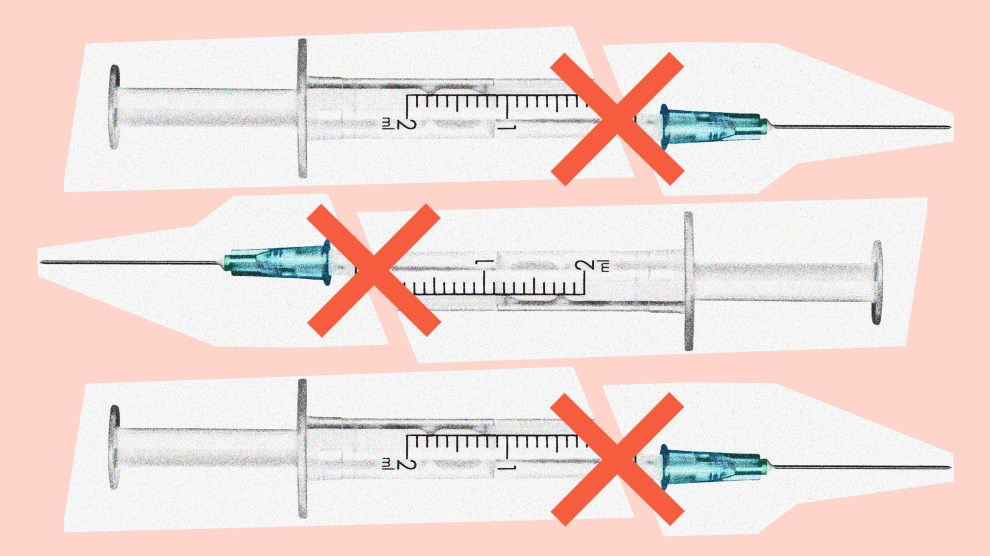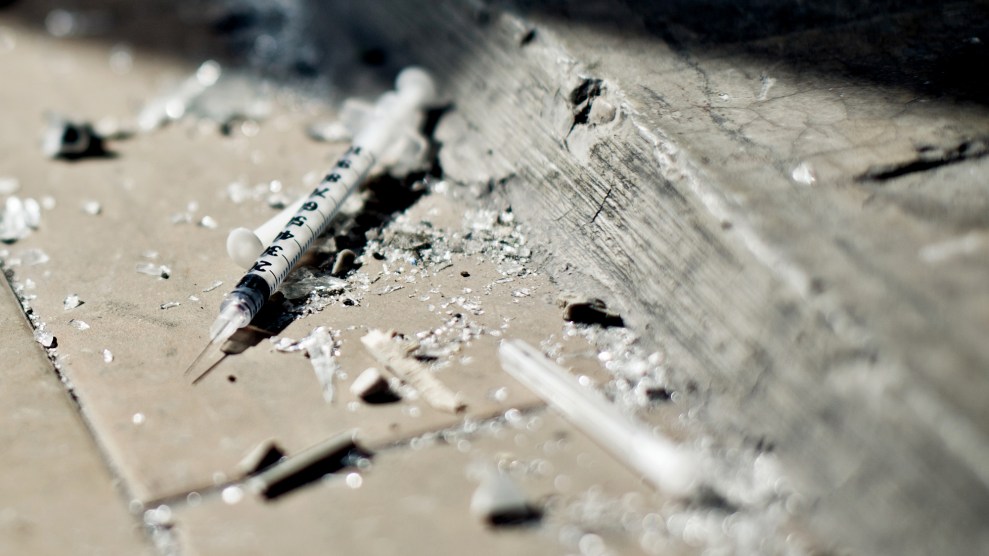
The entrance to the syringe exchange in Austin, IndianaTyler Stewart/AP
Among public health experts, Scott County, Indiana is a case study in how syringe exchange programs can transform a community. In 2015, the rural county made national news when it experienced a historic HIV outbreak, fueled largely by needle sharing among intravenous drug users. All told, 235 residents became infected in a county of 24,000. After then-governor Mike Pence reluctantly approved the state’s first syringe exchange as part of an emergency measure, HIV rates plummeted. In 2020, the county saw just one new infection.
But on Wednesday evening, in a 2-1 vote, county commissioners decided to shut down the thriving exchange in a move that public health experts worry will leave residents vulnerable to yet another outbreak of HIV and other infectious diseases.
“This is another perfect example of why politicians should not have control over public health programs,” said Robin Pollini, West Virginia University epidemiology professor. “No politician should have the power to condemn an entire community to an HIV outbreak.”
The commissioners opting to shut down the program point to the age-old, unfounded logic that the syringe exchange promotes drug use. In a since-deleted Facebook post, Commissioner Randy Julian referred to the program as a “welfare program for addicts,” reports NPR. “It was brought in here and it did its job on what it should have done, but now it’s time to move on and fight it in a different way and get people off the addiction instead of handing them needles,” Julian told the AP. “That just doesn’t do it.”
Julian’s proclamations contradict decades of research, which have found that syringe exchange programs dramatically reduce overdose rates and disease transmission and increase entry to detox programs. Many syringe exchanges, like Scott County’s, also offer medical services, connections to rehab and other social services, and infectious disease screening.
Dr. William Cooke, who was until recently the only primary care doctor in Austin, Indiana, the town at the heart of the 2015 outbreak, says the syringe exchange played a key role in getting individuals struggling with addiction into his office. Before the program opened, he says, “it was so hard trying to help people living in the shadows, having no way to be seen. People need that build up—that harm reduction, that connection with people who care about them.” With the shutdown, which is scheduled for January 2022, “my fear is that when people don’t have access to sterile syringes, they’re going to use whatever is available to them,” says Cooke.
The commissioners’ decision is the latest in a spate of anti-syringe exchange legislation across the country. In West Virginia, which is currently experiencing an HIV outbreak that the CDC has deemed “the most concerning in the United States,” policymakers recently voted to impose strict restrictions on needle exchange.
In recent years, HIV infections have fallen across the country. But they’ve risen dramatically among white intravenous drug users, who make up the primary demographic of syringe exchange clients in places like Scott County. In 2019, there were 1,148 new HIV diagnoses among white IV drug users across the country. That’s a 66 percent increase over just seven years.
Dan Ciccarone, an epidemiologist at University of San Francisco-California, notes that, amid soaring overdose rates from opioids and stimulants like methamphetamine, “Now is not the time to stop evidence based prevention programs.”

















